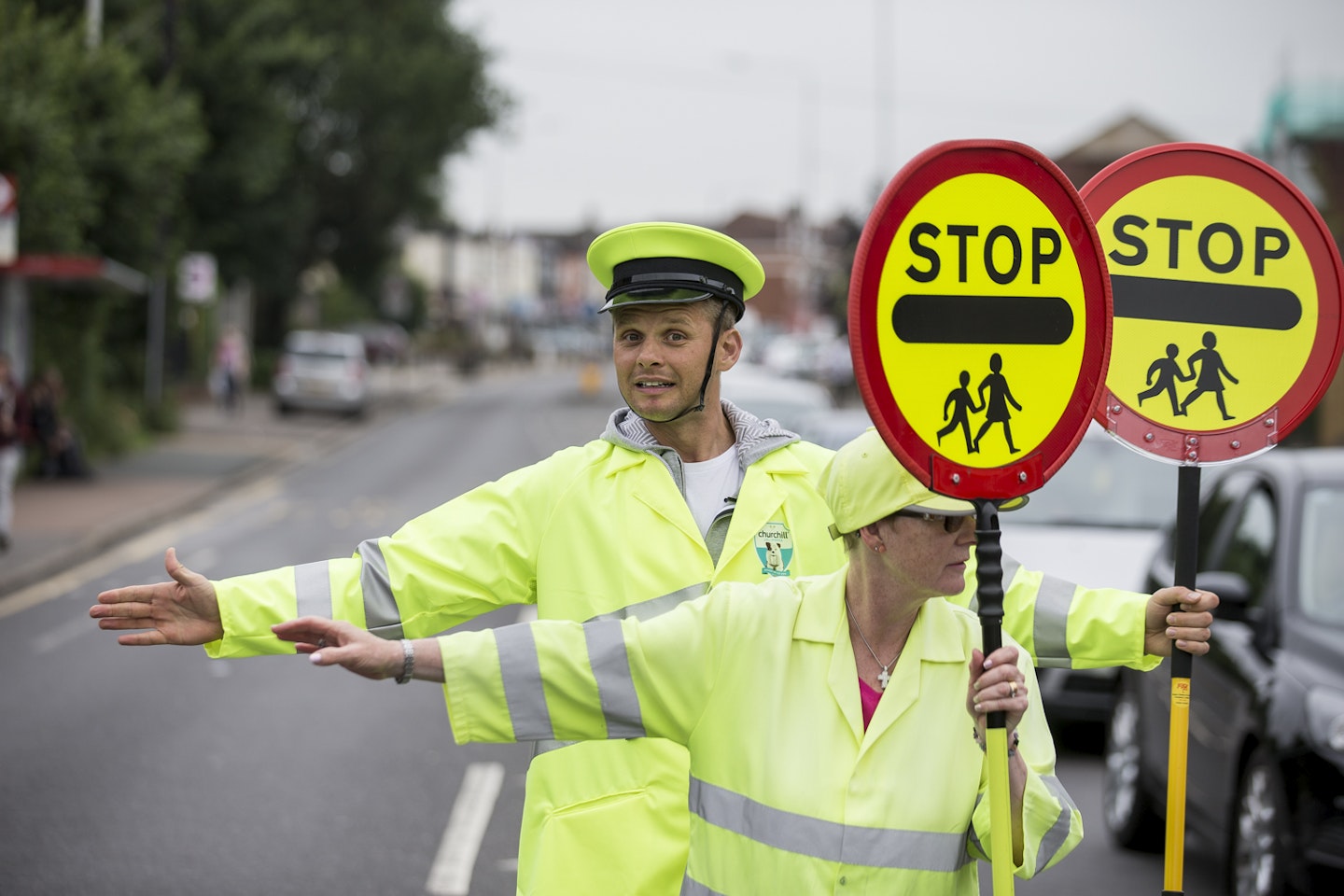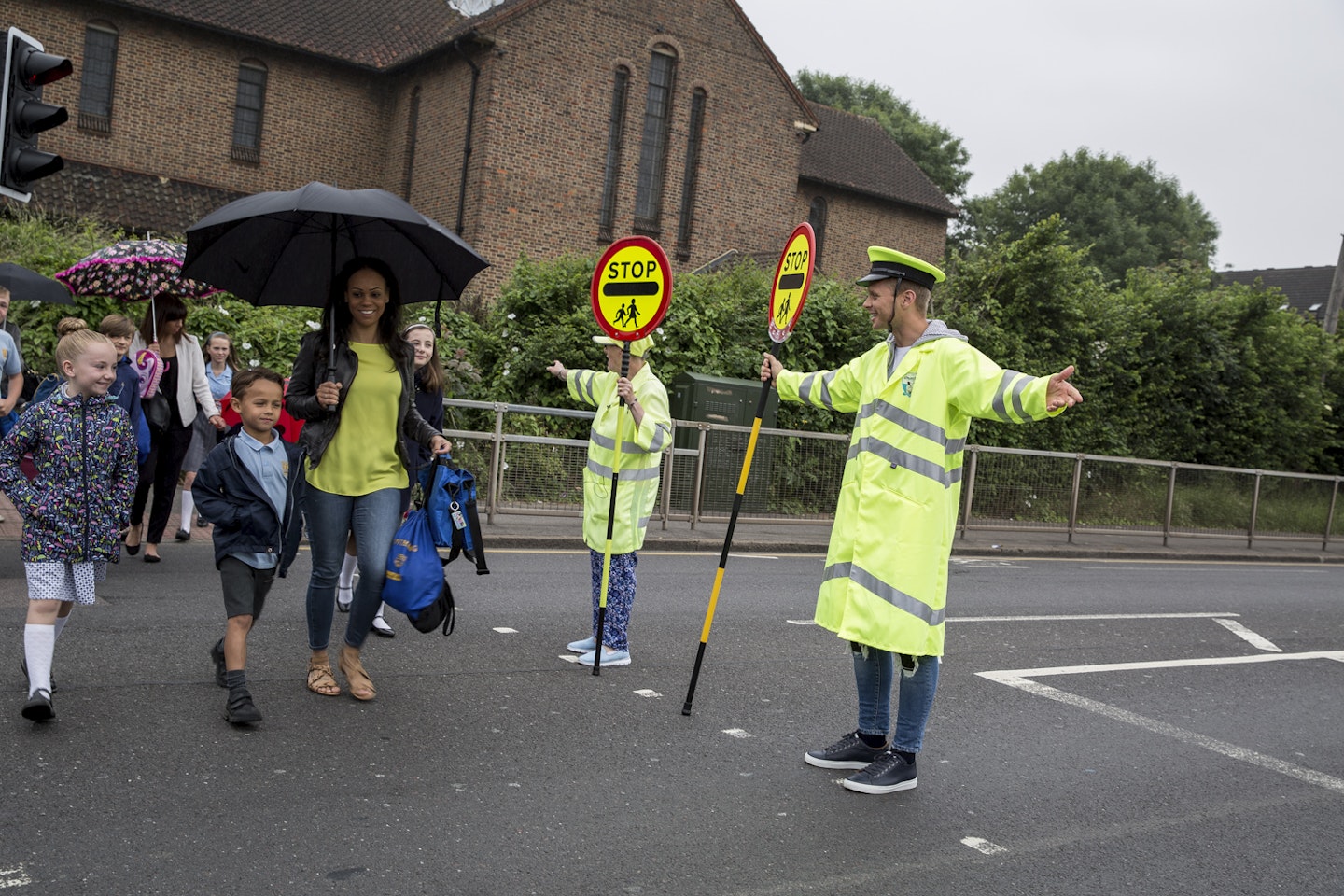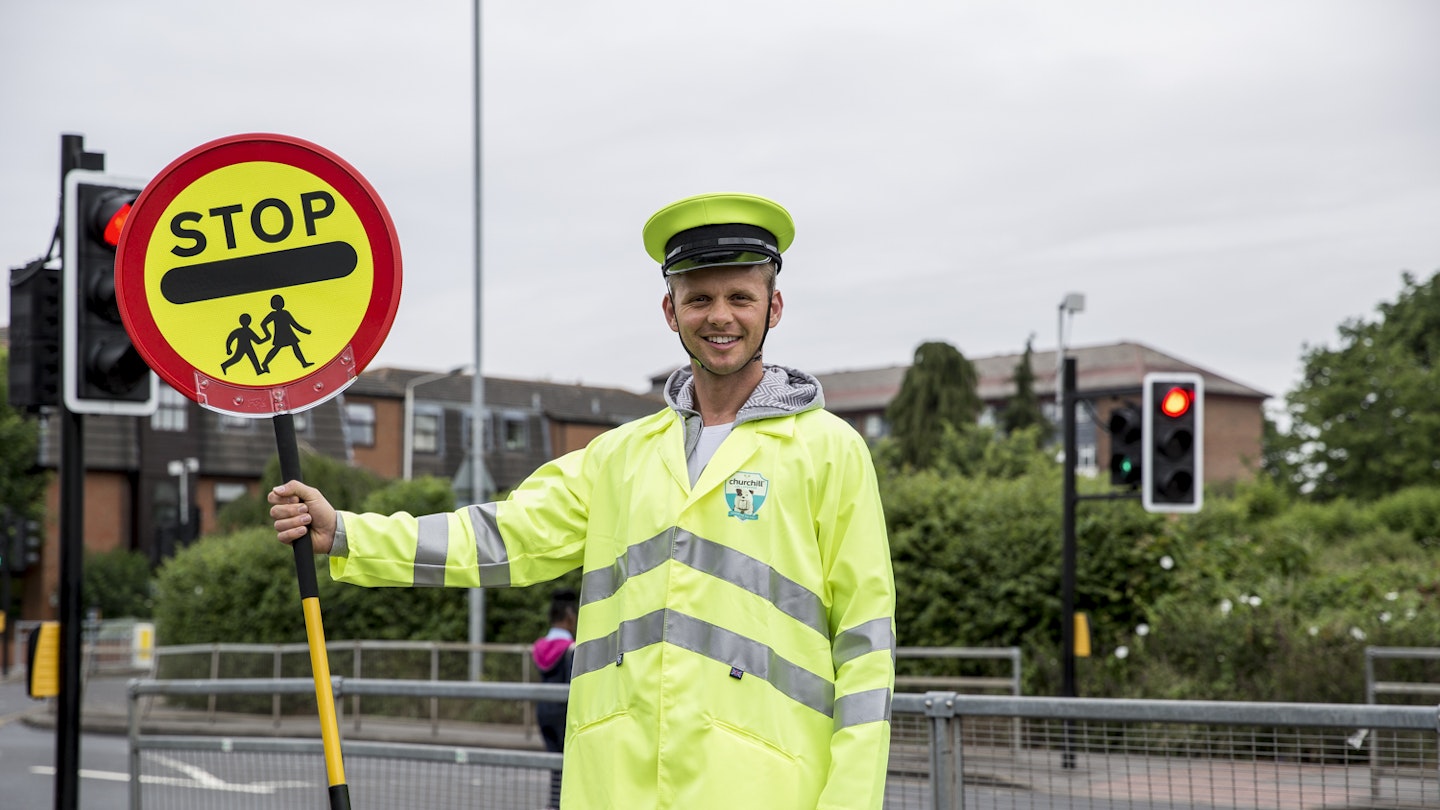The longevity of your school crossing could be under threat as more local councils are taking lollipop people off the road to meet tougher budget cuts.
Believe it or not, school crossing patrols have not been a legal requirement since 2000. An ITV news report suggests at least 992 lollipop men and women were cut between 2010 and 2014.
City councils in Sunderland and the Isle of Wight are two of the most recent bodies to have announced a dramatic reduction in numbers.
TV presenter Jeff Brazier joined Churchill Insurance in a nationwide campaign to fund 50 new lollipop roles. Churchill are calling on more volunteers to put their names forward.

Jeff said: "Being a dad to my two boys, I know how important it is to know that your children are safe during the school run.
“Working at my old school with Irene has given me a real insight into the amazing work Lollipoppers do and it makes it all the more shocking they are being taken off the roads.
“I'd urge anyone who has considered being a Lollipopper to put themselves forward in their local community – they really do make a difference."
Pedestrian injury is the leading cause of accidental death for children in UK.
So it’s no surprise that a Churchill survey found that 91 per cent of parents felt road safety at their local school had worsened in the past 5 years. Another 32 per cent noted a lollipopper had recently been removed.
Jeff was a bit apprehensive about stepping out in traffic but with a quick lesson from current lollipopper Irene, he soon got the hang of it.

He said: "Although I am slightly exhausted, this morning was incredibly enjoyable! It was extremely rewarding knowing that I was doing something so valuable for the community."
Watch the video here:
Find out more information about Churchill's recruitment drive and how to apply.
Join the conversation on Twitter by following @ChurchillTheDog and using #Lollipoppers or on their Facebook page.
You might also like to read…
Prime Minister David Cameron under fire after ending free school meals fund worth £32 million
Head teachers issue warning: ‘We need more support for primary children with mental health issues'
